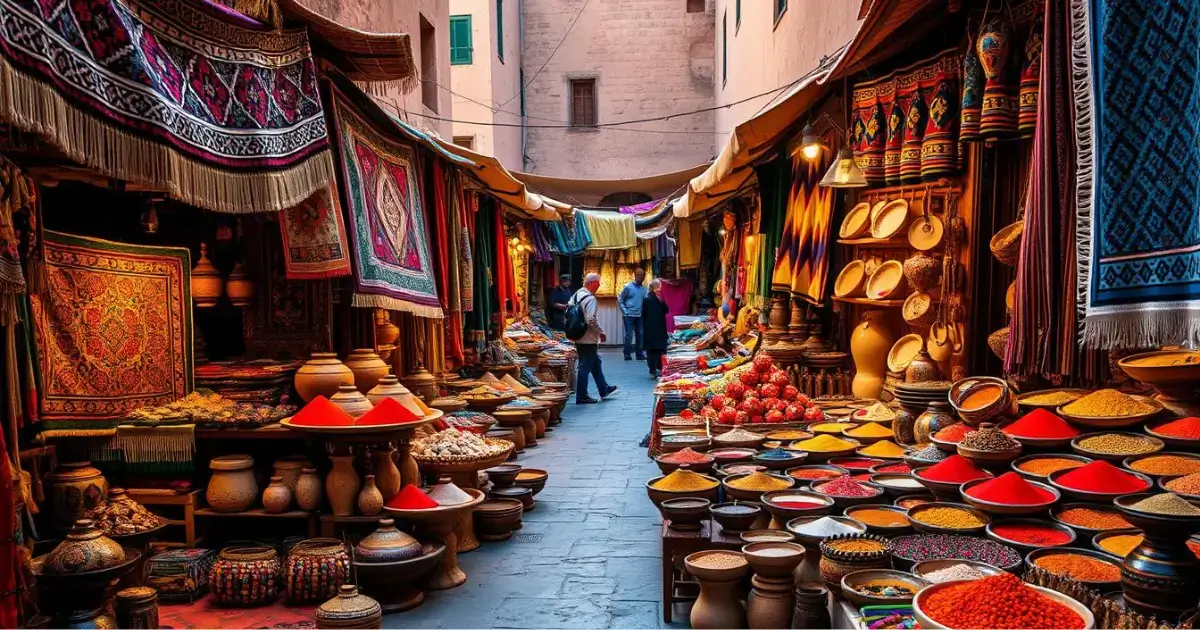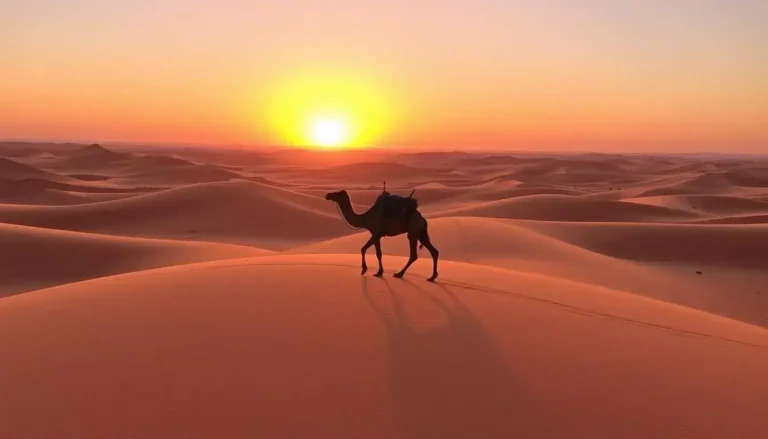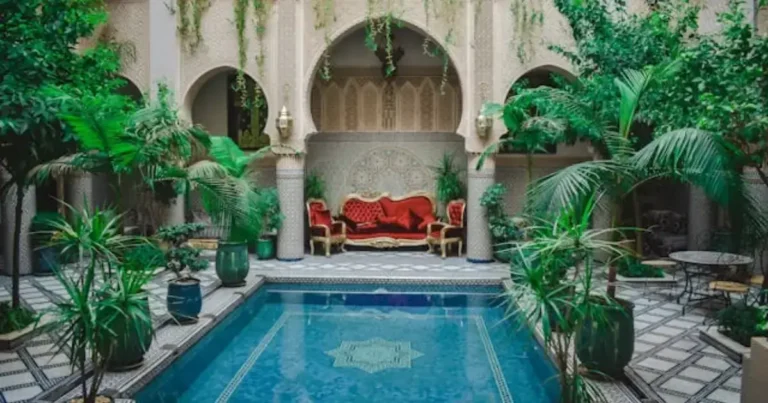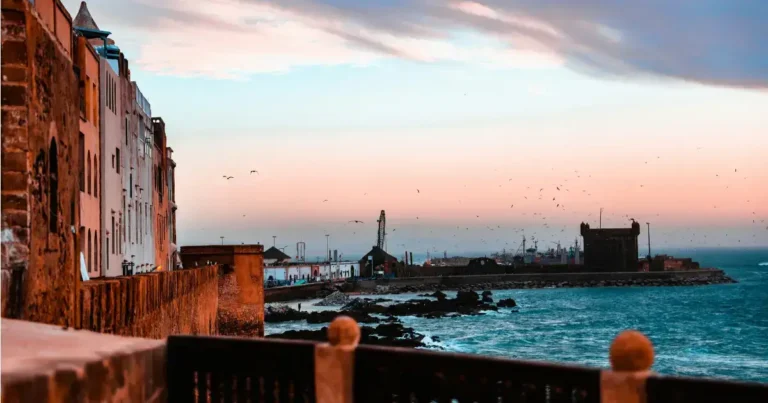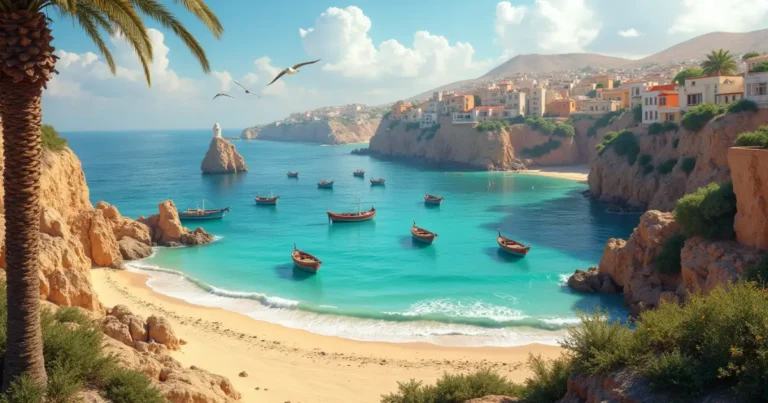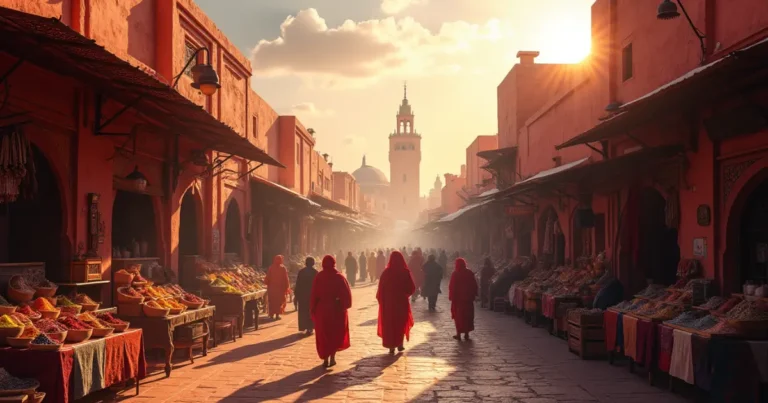Morocco Shop, Negotiate, and Uncover Unique Items at Berber Markets
Morocco Shop, or Morocco’s Berber markets are a unique shopping adventure. They offer more than just buying things. Here, ancient trading traditions meet modern culture. These markets are like living museums, showing off craftsmanship, social life, and cultural heritage.
Walking through these markets, you’ll find a world of stories. You’ll see everything from beautiful textiles to ceramics made by hand. Each piece tells a story of skill and creativity passed down through generations. Moroccan souks give you a real look at local life, letting you talk directly with skilled artisans and traders.
Exploring these markets takes patience and curiosity. You’ll learn to move through crowds, understand how to negotiate, and enjoy the special interactions. Get ready for a shopping trip that will also be a cultural journey you’ll never forget.
Table of Contents
Key Takeaways
- Berber markets offer an immersive cultural shopping experience
- Each market item carries deep cultural and artistic significance
- Negotiation is an essential part of the market interaction
- Markets provide direct connection with local artisan communities
- Authentic experiences require openness and respect for local traditions
Understanding the Cultural Significance of Berber Markets in Morocco
Moroccan souks are more than just markets. They are living museums where old traditions meet modern life. These lively places are the heart of Moroccan community life, linking business and social bonds.
The world of Moroccan souks is a rich mix of history and trade. Berber communities keep these markets alive for generations. They are more than just places to buy and sell.
Ancient Trading Traditions and Their Modern Evolution
Traditional Berber markets have changed but kept their core values. Traders still use old ways that link today to yesterday’s trade.
- Preservation of traditional bartering techniques
- Maintaining familial trading networks
- Adapting to modern economic landscapes
The Role of Souks in Moroccan Society
Moroccan souks are key to the community. They are not just places for business but also for sharing stories and knowledge.
“In our souks, every transaction tells a story, every interaction carries cultural wisdom.” – Moroccan Market Elder
Weekly Market Schedule and Locations
To grasp the rhythm of Moroccan souks, you need to know their schedules. Markets in different areas happen on specific days, making the cultural scene lively.
| Region | Market Days | Notable Characteristics |
| Atlas Mountains | Wednesdays | Textile and Handicraft Focus |
| Marrakech | Tuesdays/Saturdays | Diverse Artisan Goods |
| Fez | Thursdays | Spice and Leather Specialties |
Essential Tips for Navigating Moroccan Souks
Exploring Moroccan souks is both exciting and challenging. To succeed, you need to know the market’s layout and how to bargain. These skills are crucial for a great experience in these lively markets.
Before you go, get ready by dressing modestly and comfortably. Choose lightweight clothes that let you move freely. Also, carry a small bag to keep your things safe in the crowded alleys.
- Bring cash in small denominations
- Carry a water bottle to stay hydrated
- Wear comfortable walking shoes
- Learn basic Arabic or French greetings
When you’re in the souks, be patient and plan your path. Most souks are organized by product type – carpets, spices, and metalwork in different areas. This makes it easier to find what you’re looking for.
“In Moroccan markets, wandering is not getting lost – it’s discovering unexpected treasures.” – Marrakech Traveler
Haggling is a key part of the souk experience. Be respectful and friendly during negotiations. Smile, chat a bit, and aim for a fair price that makes both sides happy.
Don’t rush. Souks are full of sights, smells, and sounds. Take breaks, enjoy mint tea, and soak in the culture.
Mastering the Art of Haggling in Berber Markets
Exploring Berber markets is more than just finding cool stuff. It’s about knowing how to bargain and understanding local customs. Haggling in Moroccan souks is a mix of respect, skill, and knowing the culture.
Bargaining is key in Moroccan markets. Your negotiation style can turn a simple buy into a memorable cultural moment.
Understanding Price Expectations
Prices in Berber markets are not set in stone. Vendors expect you to haggle, and the first price is usually higher. Here are some tips for bargaining:
- Start by offering 40-50% of the initial asking price
- Remain calm and friendly during negotiations
- Show genuine interest without appearing too eager
Cultural Etiquette During Negotiations
Haggling in Moroccan markets is more than just about the price. It’s a social dance that needs respect and patience.
“Negotiation in Morocco is an art form, not just a transaction.” – Moroccan Market Wisdom
Common Bargaining Phrases in Arabic
| Arabic Phrase | English Translation | Context |
| Shukran | Thank you | Basic courtesy |
| Mumkin nuqasis? | Can we reduce the price? | Direct negotiation |
| Thaman akbar min hadha? | Is this price too high? | Exploring pricing |
By grasping these cultural tips and using respectful bargaining, your market visit will be unforgettable. It will become a true cultural exchange.
Traditional Artisanal Crafts and Where to Find Them
Berber markets are full of amazing crafts that show off Morocco’s rich culture. Walking through these lively markets, you’ll find incredible traditional textiles and handmade items. These pieces tell stories of skilled artisans over many generations.
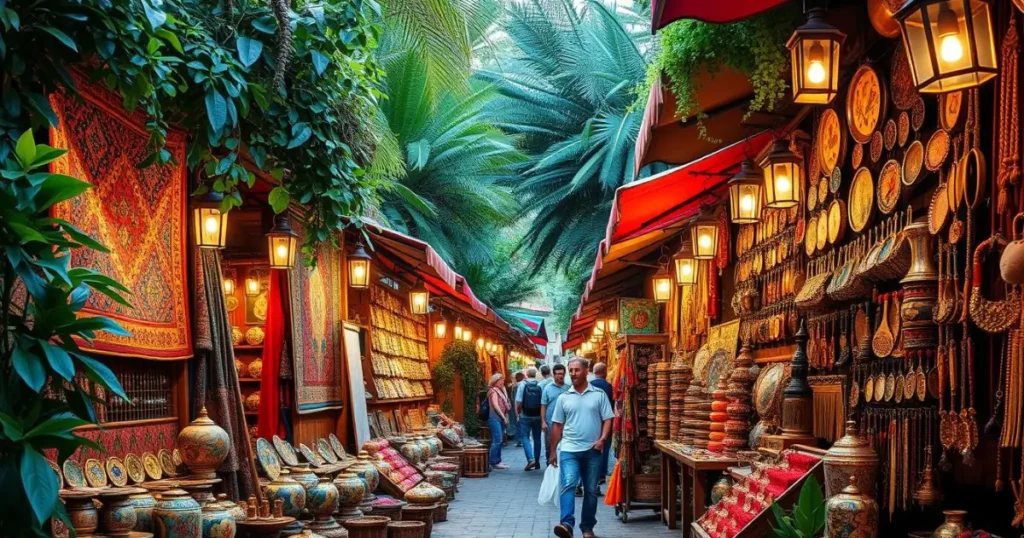
The world of Moroccan artisanal crafts is truly impressive. It includes:
- Ceramics: Intricate pottery with vibrant geometric patterns
- Metalwork featuring intricate Arabic calligraphy
- Leather goods crafted using centuries-old techniques
- Wooden handicrafts showcasing exceptional carving skills
When looking for artisanal crafts, focus on their authenticity and quality. Look for details that show they’re truly handmade, not mass-produced. Skilled craftsmen often work in specific areas of the market. So, exploring different sections can lead you to unique finds.
*”Each artisan craft represents a living connection to Morocco’s cultural roots”* – Moroccan Cultural Heritage Foundation
Some popular places for specific crafts are:
- Fez: Known for ceramics and metalwork
- Marrakech: Famous for leather goods
- Atlas Mountains: Known for traditional textiles
Your market adventure will show you incredible crafts that highlight generations of artistic talent. Take your time to enjoy the skill and passion in each handmade piece.
Berber markets .how to shop. negotiate. and find unique items in weekly souks
Exploring Berber markets needs careful planning and inside tips. These lively markets are more than places to shop. They are doors to real cultural experiences and secret treasures.
Best Times to Visit for Authentic Experiences
When to go to berber markets is key. The best time is early morning (8-10 AM). Weekdays are less crowded than weekends.
- Avoid peak tourist seasons
- Visit during local market days
- Plan for morning shopping sessions
Local Guide Benefits and Considerations
Getting a local guide can make your visit better. They show you hidden spots and explain the culture. They also help you find your way around.
“A local guide is your passport to understanding the true spirit of Berber markets.” – Moroccan Travel Expert
Documentation and Export Requirements
Be ready for export rules. Some special items might need special papers or customs checks.
- Verify item export regulations
- Keep purchase receipts
- Check customs restrictions
Pro tip: Photograph valuable items and keep all buying papers. This helps with international travel.
Exploring Textiles and Carpets: Authentication Guide
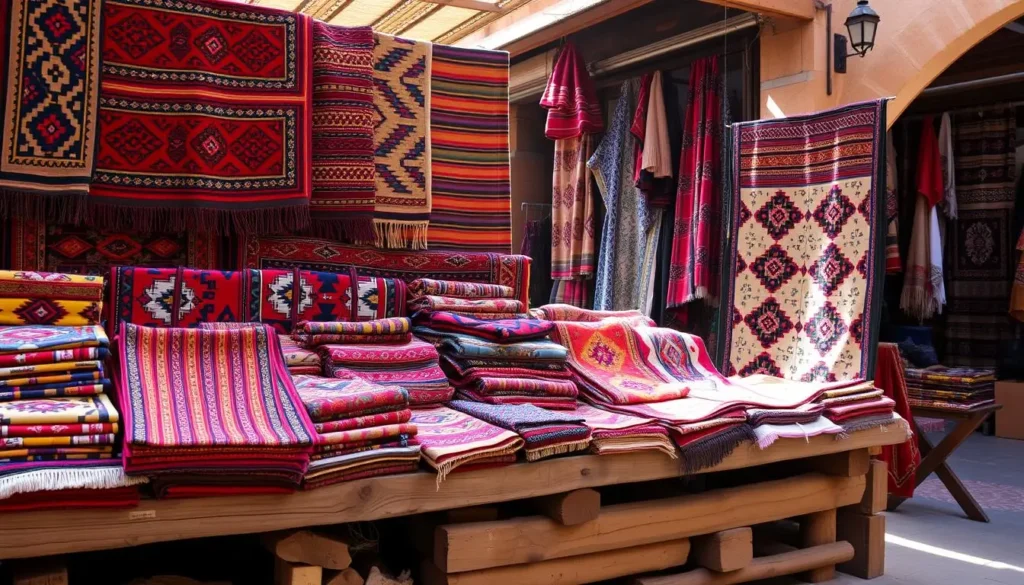
When you go souvenir shopping in Morocco, traditional textiles are a must-see. Berber carpets and detailed fabrics share stories with their designs and weaving methods.
Spotting real Moroccan textiles needs a sharp eye and knowledge of what to look for. Here are key tips for finding genuine traditional textiles:
- Check hand-woven patterns for slight irregularities
- Examine wool quality and natural dye colors
- Look for traditional Berber symbols and regional design elements
- Assess weaving density and thread consistency
“Each textile is a narrative woven with cultural heritage and artisan skill.” – Moroccan Textile Preservation Society
When picking traditional textiles for souvenirs, look for these unique features:
- Material Authenticity: Genuine pieces use natural wool or cotton
- Color Sourcing: Traditional vegetable and mineral dyes
- Craftsmanship: Handmade techniques passed through generations
Prices for authentic Moroccan textiles vary. They depend on the complexity and skill. You can expect to spend $100-$1,500 for top-quality items.
Knowing these details makes your shopping more than just buying. It’s a journey into Moroccan culture.
Antique Hunting: Discovering Hidden Treasures
Berber markets are a treasure trove for antique hunting fans. They are filled with unique cultural artifacts. Here, hidden gems wait for those who are willing to search.
Identifying Authentic Vintage Pieces
When you hunt for antiques in Moroccan souks, your sharp eye is key. Look for signs of authenticity:
- Handcrafted details and imperfections
- Traditional manufacturing techniques
- Genuine material composition
- Provenance documentation
Understanding Value and Authenticity
Finding an artifact’s true value takes more than just looking. Get advice from local experts who know history and craftsmanship. Ask about an item’s origin, age, and cultural importance.
“True collectors don’t just buy objects; they collect stories.” – Moroccan Antique Dealer
Transportation and Shipping Options
It’s important to protect your finds during transport. Look into professional shipping for delicate items. Here are some tips:
- Professional packaging
- Insurance for valuable items
- Verified export documentation
- Climate-controlled shipping
Your adventure in Berber markets is not just about buying. It’s about connecting with rich cultural heritage.
Food and Spice Markets: What to Try and Buy
Dive into the world of Moroccan souks, where food and spices tell stories of cultural immersion. The markets are alive with colors, aromas, and flavors. They turn your culinary journey into an unforgettable adventure.
In Moroccan souks, you’ll find an amazing array of spices that shape Moroccan cuisine. Your senses will be amazed by:
- Ras el Hanout – a complex spice blend with up to 35 different ingredients
- Saffron from the High Atlas Mountains
- Freshly ground cumin and coriander
- Aromatic mint for traditional tea
“Spices are the soul of Moroccan cooking, each handful tells a story of tradition and flavor.” – Moroccan Chef Wisdom
Here are some shopping tips for spice markets:
- Always sample before purchasing
- Check spice freshness and color intensity
- Negotiate prices respectfully
- Pack spices in airtight containers
Your cultural immersion peaks when you try street foods like harira soup, merguez sausages, and fresh-baked khobz bread. These foods will change how you see Moroccan cuisine.
Conclusion
Your journey through Moroccan souks is more than just shopping. These lively markets open a window into a world of rich culture. Every deal you make tells a story, making you more than just a tourist.
Exploring Berber markets needs patience and an open mind. You’ve learned how to negotiate and understand local ways. Each item, from textiles to spices, holds a piece of history, ready to remind you of Morocco.
Good market experiences are about people, not just things. By talking with locals, learning Arabic, and respecting their ways, you make unforgettable memories. Berber markets offer a unique chance to connect with others and experience a different culture.
Looking back, you’ll see the real value was in the stories and growth you gained. Your shopping trip was a way to learn about Morocco’s diverse culture. It’s a journey that enriches your understanding of the world.

